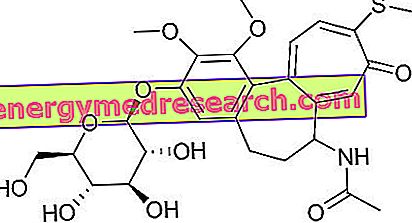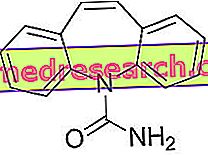Those who practice body building have specific nutritional needs, on which they depend, for better or for worse, for most of the results obtained. Body building is perhaps the absolute sport in which athletic performance is more influenced by diet and lifestyle. It would be unthinkable to try out this discipline and hope to get immediate results, without first having at least a clear understanding of the basic rules to follow in the kitchen.
Given the great importance it has, the diet of each body builder should be accompanied by the best dietary supplements, chosen according to the type of diet and training.
Rule number one: do not overdo the supplements
Aware of the very important role played by diet and food supplements, many bodybuilders take the nutritional approach to the extreme, thinking that they should take as much food and supplements as possible. Such a strategy, in addition to not giving the desired results in many cases, could even prove to be counterproductive.

Think of those bodybuilders who take every day: high-dose multivitamin at breakfast, 30 grams protein shake in mid-morning, another in mid-afternoon with creatine, and one before bedtime with glutamine and ZMA. If we combine all this with a high-protein diet, it is clear that the whole body is subjected to a stress that is in many respects counter-productive. Let's see then to establish some guidelines that we will examine in detail, in the following case, in the following article:
a) do not take more than three different supplements per day
b) insert in the integration plan some periods of absolute discharge (suspend the hiring of all the integrators) or relative (replace a given integrator with another)
c) as a rule, do not take more than twice the recommended intake dose
d) adapt the food supplement to one's diet and the type of training performed. A truly correct diet could be enough to quickly reach the set goals
Rule number two: do not underestimate vitamins
Vitamins are essential nutrients for the body and even more so for a boybuilder. These powerful micronutrients intervene in a myriad of chemical reactions, regulating, as a whole, the entire body metabolism. The typical diet of industrialized countries is often deficient in vitamins and becomes even more so when their needs increase due to intense psychophysical stress. Bodybuilders who do not consume a wide variety and quantity of fruit and vegetables each day (at least 400-500 grams) should seriously evaluate the hypothesis of taking a low-dose vitamin supplement daily. These products, although they cover a large part of the basic vitamin requirements alone, are generally well tolerated and there is no risk of overdose. Undesirable effects may arise due to the continued use of supplements with high vitamin content (generally sold in pharmacies). To learn more, see "Vitamin Supplements".
Rule number three: do not overestimate proteins
Protein supplements are important for a bodybuilder's diet but they are not as indispensable as some would have us believe. Reaching by diet alone the famous 1.5-2 grams of protein per kg of body weight (equivalent to 105-150 grams for a normal 75 kg individual) is certainly not impossible. Three hundred grams of chicken, 100 of tuna or beans, 300 ml of milk in the morning and 50 grams of bresaola in a snack, are enough, on their own, to cover the protein needs of most bodybuilders.
Protein supplementation therefore makes sense if used for practical reasons in place of a snack (the classic milk shake with milk, protein and banana) or to complement a low protein diet.
One of the most effective and undervalued strategies for maximizing muscle mass gain is to consume a small meal before going to bed on the days you are training. In this regard you can choose between 50 grams of grana padano, a bit of bread with thinly sliced or 300 ml of whole milk with 15-20 grams of protein. The results will be evident already when you wake up when you feel a pleasant sense of muscle fullness (except, of course, basic digestive problems that make a similar nutritional approach contraindicated). To learn more: Protein supplements; Milk's proteins.
Rule number four: amino acids, learn to choose them
Most dietary supplements dedicated to bodybuilding are based on amino acids. This category includes supplements such as creatine, glutamine, arginine, carnitine, ornithine, BCAAs, and so on and so forth. Orienting yourself among all these commercial proposals is not at all easy and for the inexperienced bodybuilder it becomes extremely easy to make risky choices. First of all it is important to keep in mind that amino acids are the constituents of proteins. Consequently any protein food contains, in varying proportions, all the various amino acids. Consuming a wide range of protein-rich foods (fish, legumes, dairy products and meat) is more than sufficient to meet the needs of these nutrients.
The belief that some amino acids increase athletic performance if taken alone at high doses is scientifically proven only for some (BCAAs and creatine), while for others there are still strong doubts, dictated by the conflicting results of the various scientific researches. Once again, the use of these dietary supplements is based on practicality and ease of use.
Hoping that some amino acids increase the secretion of GH or testosterone by 30%, as often read on advertising leaflets, is pure science fiction, as numerous studies and scientific researches in the sector point out. If this were not the case, to treat children with pituitary dwarfism, it would be sufficient to administer particular amino acids, instead of spending thousands of public euros on injections of growth hormone.
Beyond this it is good to experiment with the various products without relying too much on what is reported in the advertisements. In fact, the response to these supplements varies from subject to subject. Whoever writes there, purely by way of example, particularly appreciates the ergogenic effects of glutamine, both after training and before night rest. On the other hand, however, it is part of that 30% of subjects, who for one reason or another do not get any advantage of creatine supplementation. To learn more, see: Amino acid supplements
Rule number five: minerals, better not to remain in reserve
Hanging up with the speech made for vitamins, it is very important to take the right amount of minerals every day, strictly. The diet and the physical activity typical of body building are often the cause of real deficiencies of these micronutrients.
The intake of zinc, calcium, iodine, iron and magnesium is particularly important; these minerals are in fact lacking both in the diet of bodybuilders and in that of many sedentary people. As for calcium, consuming high amounts of protein and avoiding dairy products, it is quite easy for a bodybuilder to suffer from a deficiency. Even the sodium, despite being avoided like the plague by many athletes, is a very important mineral. In the summer months for example, when sweating is conspicuous, drinking plenty of water low in sodium would do nothing but further reduce its blood concentration (hyponatremia). This phenomenon, now re-evaluated with respect to the past, is responsible for symptoms such as mental confusion, chronic fatigue, muscle cramps and dehydration.
Many bodybuilders throw money and results into supplements they wouldn't need (see amino acids and proteins taken in disproportionate amounts) forgetting to satisfy the minimum need for vitamins and minerals. Choosing an excellent supplement that contains both is an effective and economical choice. Very often, in fact, we pay disproportionate amounts to buy supplements enriched with individual vitamins, when it would be much cheaper to take a multivitamin in the morning and buy standard products. To learn more: Supplements of mineral salts.
Rule number six: choose supplements based on training
Among the many supplements there are some indicated during training preparation, others for postworkout and others for the "prenanna". Besides the time of day it is important to evaluate a supplement also based on the training period. Taking three grams of branched amino acids before a "heavy duty" session in a mass period would not make much sense, especially if the diet were already supplemented with whey proteins. These supplements would instead become very useful in the definition period, especially in the previous hour and in the one following an aerobic training.
Rule number seven: consult an expert
The flourishing market for food supplements is enriched, day after day, with new products. Orienting yourself among all these commercial proposals is not easy. For this reason it is important to rely, at least initially, on the advice of a nutritionist or an experienced personal trainer.
Rule number eight: burn fat, not health
We conclude this article by renewing our invitation not to joke with our health. Food supplements, fortunately, are safe products and this aspect is generally independent of their effectiveness. However, it is good to respect the doses of intake and avoid dangerous behaviors such as taking multiple high-dose products at the same time.
A particular discourse concerns fat burning supplements, also known as thermogenics or thermogenic. Bodybuilders often tend to abuse such products that can be addictive and responsible for even major side effects.
Those who practice bodybuilding, through the optimization of diet, training and integration, should stimulate weight loss by defusing those physiological mechanisms that cause a reduction in muscle mass. To achieve this, it is best to follow a balanced diet throughout the year, rather than adopting extreme food and supplement strategies at the last minute. Thermogenic agents, in addition to being particularly dangerous for the heart and brain, can negatively affect muscle mass and the immune system. To learn more: Fat burning supplements; Caffeine and sport; Ephedrine and sport.
See also: Diet and body building



